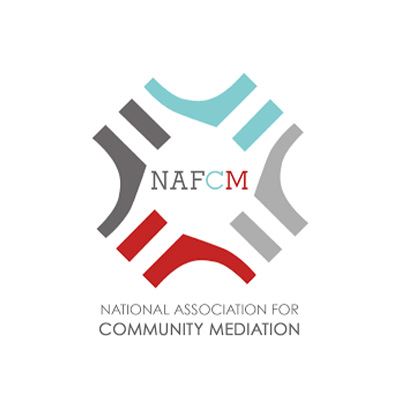
Charlotte Child Custody & Visitation Lawyer
Safeguard Your Parental Rights with an Experienced Legal Representative
In North Carolina, parents have a constitutional right to custody of their children, but may be limited or denied if one or both parents is deemed unfit. An award of child custody or visitation is not meant to punish or reward either parent. Instead, the judge must decide what custody and visitation arrangements will be most beneficial for the child’s mental, physical, emotional, and spiritual needs.
What is Child Custody?
Child custody is the judicial determination as to a minor child’s physical and legal custody.
Types of Custody
- Physical custody is the place in which the child will reside.
- Legal custody refers to the authority to make important decisions regarding the child’s welfare.
- Primary custody is when the child mostly lives with one parent while the other parent is on a visitation schedule.
- Joint custody is when the child lives with both parents on an equal basis.
While many people believe that the default position is that the mother will have primary custody, or that there is a presumption that joint custody is best, that is not the case in North Carolina. The primary consideration in child custody and visitation cases is the best interest and welfare of the child. There is no automatic presumption as to who will best serve those interests. We recommend working with an experienced Charlotte child custody lawyer to help you protect your rights and fight a custody battle.
Do you have questions about your legal parental rights? Contact our Charlotte child custody and visitation lawyer by calling (704) 870-0340.
Factors Considered When Determining Child Custody & Visitation
Child’s Wishes
If the judge determines that a child or children can express a reasoned, independent opinion regarding the parent with whom he or she prefers to live, that opinion is entitled to great consideration but is not determinative. North Carolina statute does not designate a particular age a child must reach before his or her wishes will be considered. Rather, whether to consider the child’s desire and the weight to be given to his or her wishes is determined by the trial judge.
Domestic Violence and Alcohol/Drug Abuse
When determining child custody and visitation, the trial judge will consider any history of domestic violence and any drug or alcohol abuse issues involving either party. To this end, the judge may order supervised visitation, require a party to abstain from alcohol, and/or require a parent to participate in alcohol-monitoring. In essence, the judge can impose conditions he or she deems necessary to ensure the safety and well-being of the child(ren).
Visitation
It is natural in high-conflict cases for one or both parents to initially take the position that the other party should have little or no visitation with the non-custodial parent. While emotionally understandable, this position is rarely realistic. It is extremely unlikely that any judge will deny or severely restrict visitation. Unless visitation with the other parent would be detrimental to the child or jeopardize his/her welfare, you can expect the judge to grant fairly liberal visitation. Unless there are extenuating factors, our Charlotte custody lawyers at KYA Law encourages its clients to take the most legally reasonable position rather than advocating for extreme arrangements.
Mediation
In North Carolina, parties involved in child custody and visitation disputes are required to participate in child custody mediation. In these meditation sessions, parents meet together with a court-employed psychiatrist, psychologist, counselor, or social worker to arrive at a mutually agreeable parenting plan. Custody attorneys are usually not involved in these sessions. If the parents can reach an agreement on custody and visitation, a “parenting agreement” is drafted by the mediator and sent to the judge for approval. If no agreement is reached, the trial judge will make all custody and visitation decisions.
Custody or Visitation Modifications
A court order for custody or visitation may only be modified if there has been a substantial change in circumstances and a change in custody or visitation is in the best interest of the child. The party requesting the change has the burden of proving that the changed circumstances have affected the welfare of the child and that a modification of custody and/or visitation is necessary to promote the well-being of the child. Factors warranting a custody modification include interference with visitation that harms the welfare of the child, a child’s poor health and behavior when with one parent but improved condition when with the other parent, or the emotional condition of either parent.
Is NC a 50/50 Custody State?
North Carolina does not have a specific law that mandates a 50/50 custody arrangement. The primary focus of the court in custody cases is to determine an arrangement that is in the best interests of the child. While a 50/50 custody arrangement or joint physical custody, can be a possible outcome in some divorce matters, it is not mandated by law.

Whether you have questions or you're ready to get started, our legal team is ready to help. Complete our form below or call us at (704) 870-0340.
Do I Need A Lawyer for Child Custody in NC?
Having a lawyer for child custody & visitation matters in North Carolina is highly recommended, though not legally required. Child custody cases are complex, emotional, and have long-term implications. Hiring a skilled child custody & visitation lawyer can significantly benefit you, your child’s future, and your case.
Here's why you should consider having a lawyer for child custody in NC:
- Thorough Knowledge of the Law: Custody laws can be complex and subject to interpretation. An experienced lawyer will have a comprehensive understanding of these laws and how they apply to your case.
- Objective Legal Advice: Seasoned child custody & visitation lawyers in NC will provide you with objective legal advice based on your situation. They will explain your rights, which will help you understand your options, and guide you in making informed decisions that prioritize the best interests of your children.
- Ensure Protection of Your Rights: At Law Office of Kelli Y. Allen, PLLC, our skilled lawyer will advocate for your parental rights and protect your interests throughout the duration of the custody proceedings. Your voice will be heard and the court will fully respect your rights as a parent.
- Solid Legal Strategy and Representation: Our skillful child custody & visitation lawyers in Charlotte, NC will create a strategy that is customized for your case. We can gather evidence, interview witnesses, and we know how to present a strong case on your behalf. We will represent you in negotiations, mediation, and court proceedings, ensuring your arguments are presented effectively.
- Conflict Mitigation: Custody disputes can become highly contentious and emotionally charged. With an attorney acting as your advocate, you can mitigate conflict and maintain a more constructive dialogue between the parties involved.
Rely on Compassionate Legal Representation
Contact the Charlotte child custody and visitation lawyer at the Law Office of Kelli Y. Allen, PLLC if you’re preparing to file for divorce or need to modify an existing court order. Our knowledgeable and experienced attorney, Kelli Y. Allen, has a comprehensive understanding of both divorce and family law and can help you negotiate a parenting plan that reflects your child’s best interests.
Contact the Law Office of Kelli Y. Allen, PPLC at (704) 870-0340 to schedule a confidential consultation.

Real Testimonials, Real Cases
-
"Great firm! Great team! Great people!"Anonymous
-
"We are happy with their service."Anonymous
-
"Excellent Immigration Law Firm"Anonymous








